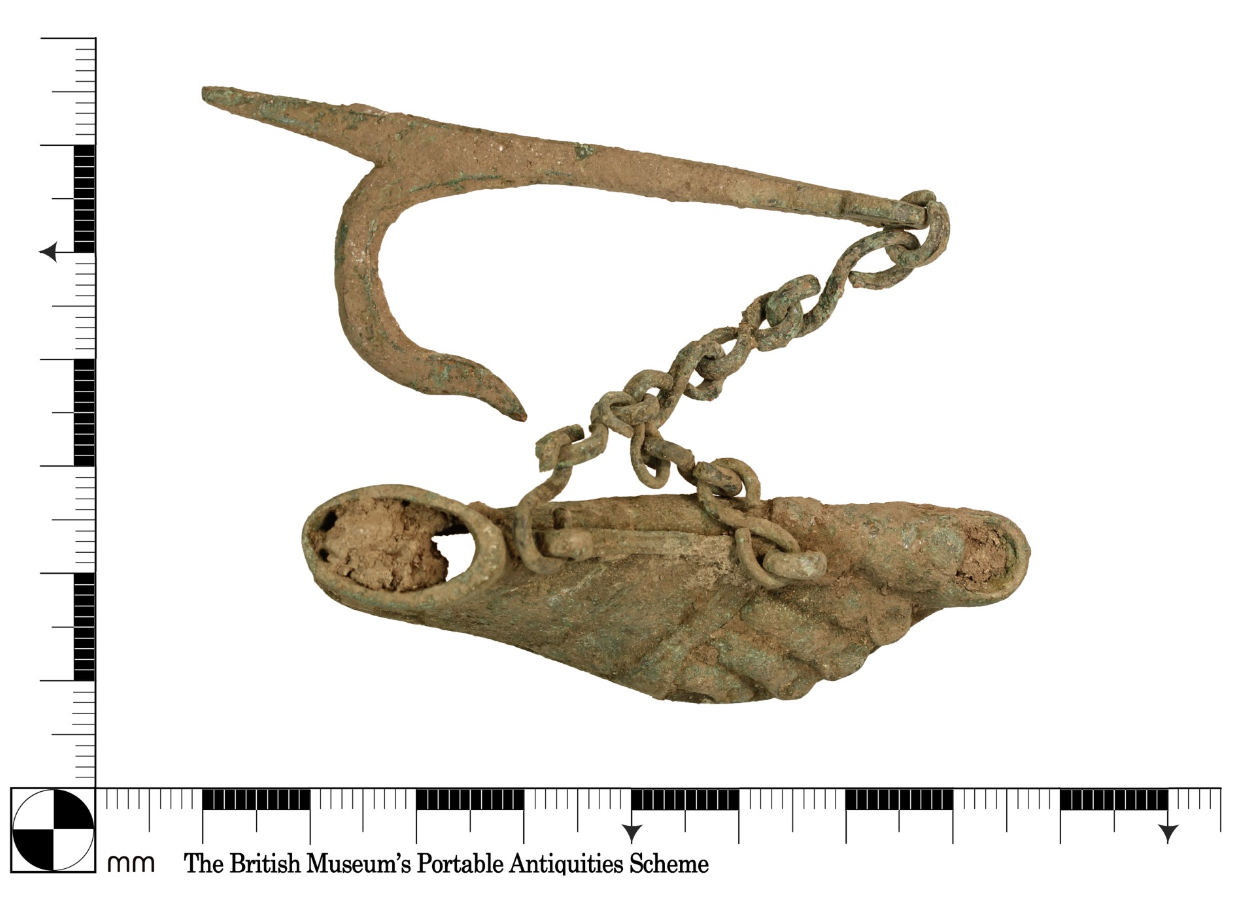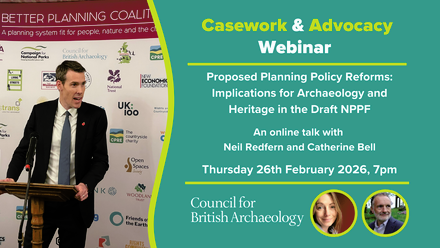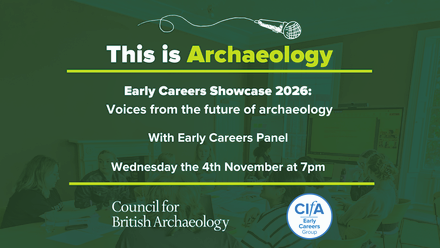What does the future of archaeology look like, and who are the people shaping it? Join us for a special edition of our ‘This is Archaeology’ series as we hand over the microphone to those defining the future of the sector. This showcase event celebrates the vital and innovative work being done by professionals in the early stages of their careers.
This showcase celebrates the wide spectrum of career paths that make up the modern heritage sector and is a unique opportunity to hear fresh perspectives and learn about the cutting-edge projects and new challenges that are defining the discipline today.
In a fast-paced, ‘mini-conference’ format, we will be joined by a panel of speakers who will each deliver a short, dynamic presentation. After the talks, you’ll have the chance to put your questions directly to the speakers in a moderated Q&A session.
This event is run in partnership with the CIfA Early Careers Special Interest Group to champion and celebrate the essential contribution of new professionals to the sector.
The Panel
Amelie Wiseman
Cathedral Learning Officer at Gloucester Cathedral
They say in most heritage jobs that every day is different and that no one week is the same – A sentiment I have struggled to explain to many friends over the years. I feel this is especially true in a Cathedral or active place of worship – where your days, weeks and months can be varied. Indeed, two years ago, many advised me that it can take a year or more to learn the ‘rhythms’ or ‘seasons’ of the Church. Coming now to the end of both my second year at Gloucester Cathedral, and of full time employment (having previously worked in part time, academic, or voluntary roles) I would say that I relate. My first year was a whirlwind and 2025 is really where I’ve been able get comfortable and flex some of my creativity and love for heritage, and community – from heritage crafts to education access programmes to Gloucestershire YAC! This talk will therefore be a look back at my second year at Gloucester Cathedral, using some of the projects and programmes I’ve been privileged enough champion to show the variety of life in a historic church and, highlight some of the work a Cathedral (or any) learning officer can do.
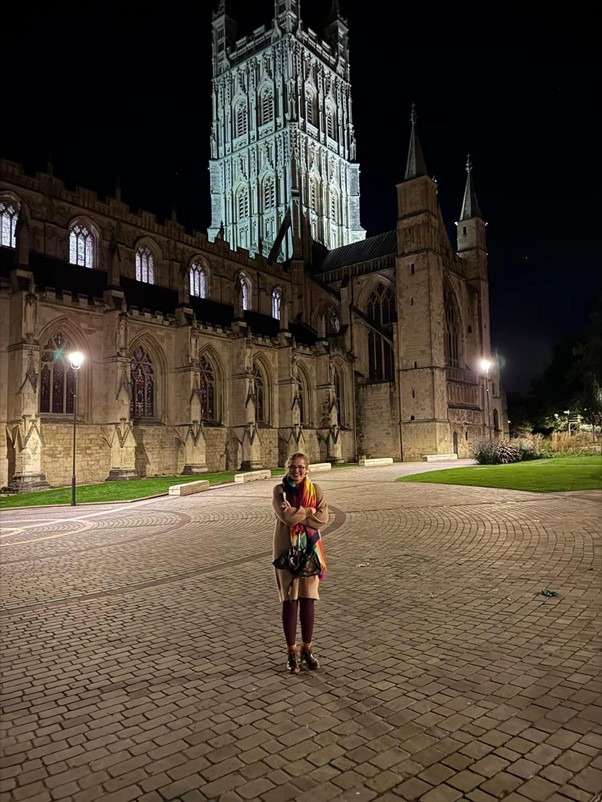
Isobel Grimley
PhD Candidate in Archaeology at the University of Bradford
My PhD research, and therefore my day-to-day activities, focus on uncovering the lived experiences of children and adolescents who are often still missing from the archaeological narrative. While bioarchaeology has made great advances in the study of children and adolescents in the recent decades, these individuals are still often seen as too complex or as offering little useful information beyond their age-at-death. Additionally, young individuals may erroneously be seen and interpreted simply as little adults. Yet these formative years are periods of profound physical and social change, and analysing young people’s skeletal remains can provide novel and important insights into what life was like in past societies.
Children are particularly vulnerable to health problems from challenging living conditions, making them incredibly sensitive indicators of past environmental and social change. My research applies the concept of frailty (previously used only on adult remains) to children, adolescents and young adults from medieval and post-medieval sites in Britain and the Isle of Man. This approach explores the embodiment of health during growth and development, and how these experiences can change over time in response to wider societal conditions.
In this short talk, I will reflect on what it means to study the bones of young individuals, and the challenges around interpreting these brief lives. The talk will highlight how bringing children and adolescents into focus will ensure that a more representative picture of past populations is built. The aim is to debunk myths, present how important it is to uncover these highly influential early life experiences, and, more broadly, remind ourselves that every adult story begins with a childhood.
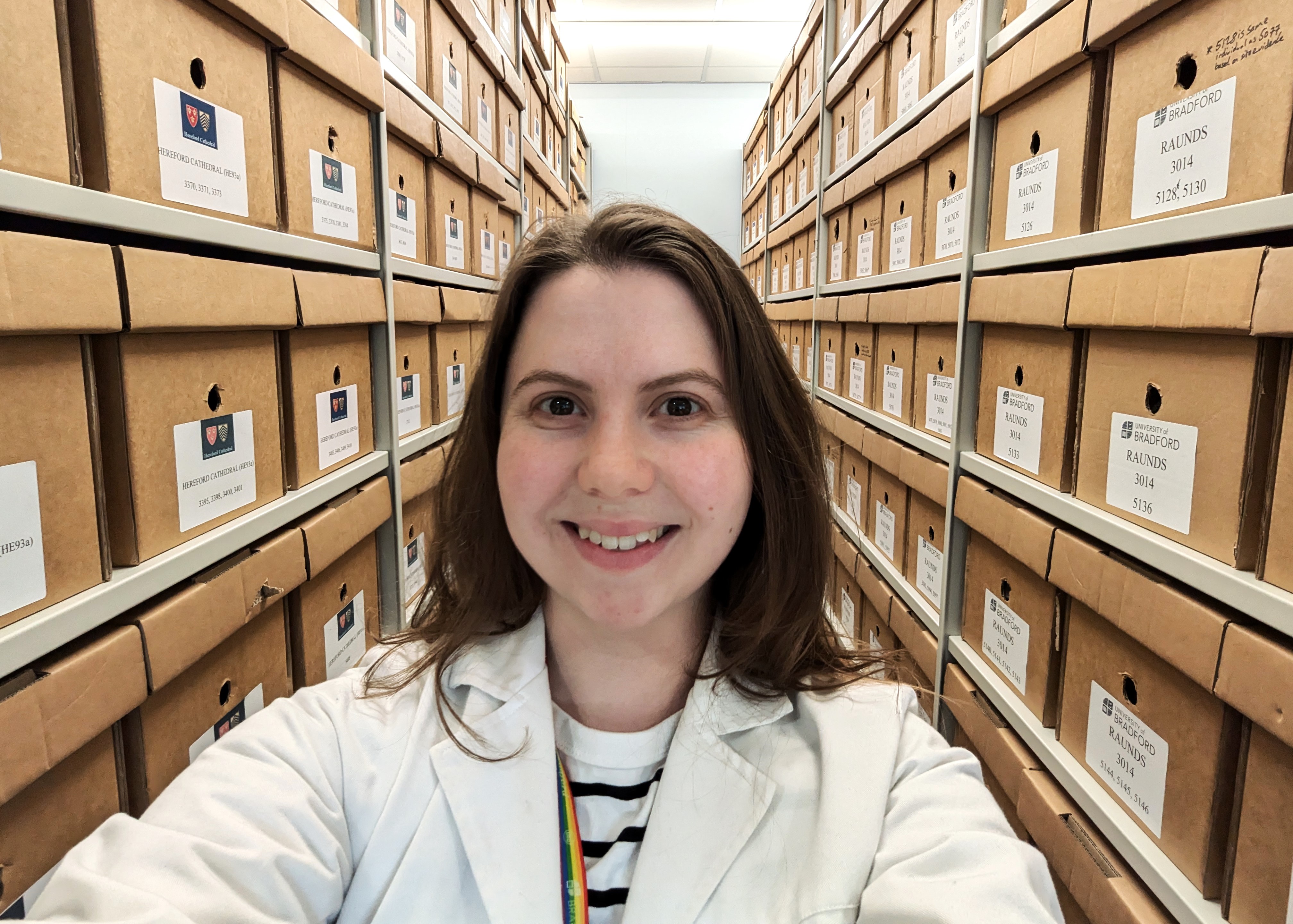
Isabelle Diggle
Trainee Iron Age and Roman Pottery Specialist at MOLA (Former Finds Liaison Officer for Kent)
Archaeological finds have the unique power to connect people directly with the past, transforming abstract history into tangible, personal experiences. This talk will explore the practical strategies for making archaeological finds accessible to diverse audiences, drawing on my experience in public engagement and finds recording. I'll discuss the challenges of translating specialist knowledge into compelling narratives that resonate with non-experts whilst still maintaining scholarly integrity. From handling sessions that allow people to touch the past, to social media campaigns that bring finds to wider audiences, I'll share successful approaches for bridging the gap between archaeology and the public. I will also explore why it is important to encourage the general public to be passionate about the past and how this can aid the archaeological sector at large.
The role of Finds Liaison Officers extends beyond recording and identification; we serve as translators between the archaeological community and the public who discover these objects. By examining case studies of Roman finds that have captured public imagination, this talk will demonstrate how thoughtful engagement can transform casual finders into passionate advocates for heritage conservation, creating a shared sense of stewardship for our collective past.
